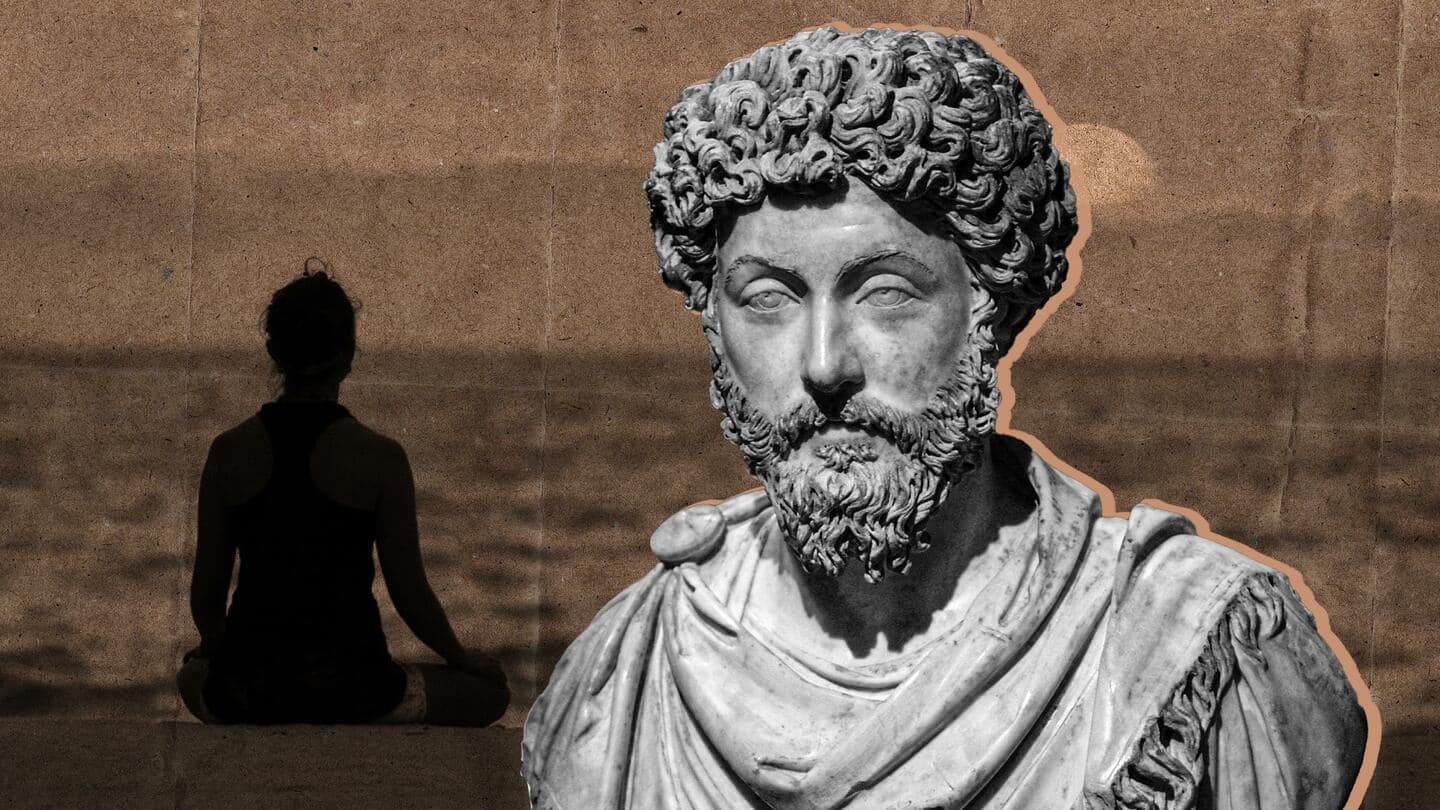
Stoicism: Some stoic practices for modern life
What's the story
Stoicism emerged as a philosophy, a way of life most famously in ancient Rome somewhere around 50-100 AD. Although, it was the Greeks who pioneered the thinking later. Even after two millennia have passed, the philosophy still finds relevance in our modern world, and rightly so. Read on to know what it is and how can you practice stoicism in your daily life.
Definition
What is stoicism?
It is a philosophy of life that maximizes positive emotions, reduces negative emotions, and helps individuals to hone their virtues of character. At any moment, in any situation, and at any stage of life, Stoicism provides a framework for living well.
Detach
Set goals and detach yourself from outcomes
The outcomes of certain tasks we do, apart from our efforts, also depend on external circumstances, which are generally outside our control. Set goals strictly related to your efforts. For example, when preparing for an interview to get a job, rather than setting the goal of getting the job, make it your goal to dress right and answer every question with your best efforts.
Virtue
Strive to pursue character and virtue
According to DailyStoic.com, the four virtues that matter the most are: Courage - Being willing to face difficult and painful things head-on. Temperance - Avoiding excess of all sorts, be it food, luxury, leisure, or anything. Justice - Doing what is right, even if it is inconvenient, difficult, or costly. Wisdom - Seeking to know the truth, learning continuously, and keeping an open mind.
Resilience
Practice resilience when faced with obstacles
We get better under pressure and trial, and for stoics, the obstacle is the way. The goal is to see the adversity rightly and not let one's peace of mind be destroyed by its arrival. Nobody wants hardship in any particular case, but it is a necessary element in the formation of worthy people. Stoics seek value in everything that happens in life.
Things you can control
Focus on what you can control
One of the pillars of Stoic philosophy is not letting circumstances outside your control disturb your equilibrium. We all spend too much time and energy worrying about things outside of our control. However, trying to influence things outside of your control is a futile effort. The stoic way here is to work on improving the things we can influence.
Set examples
Lead by example
People tend to learn more from observing the way you live than from any instruction you might give them. If a person tells you how to be a better person, the implication is that you currently are not a good person. You might feel judged. But if you're shown how to be a better person, you might be inspired to follow their example.